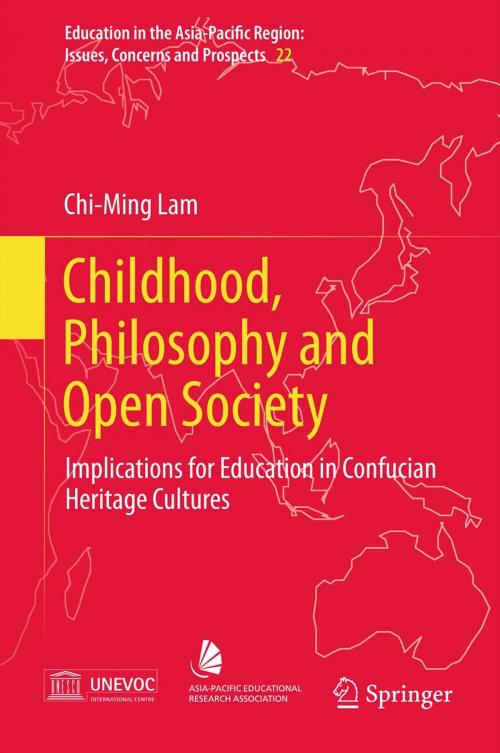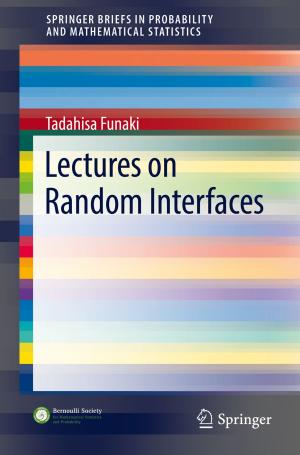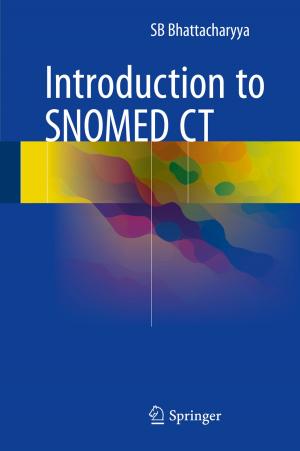Childhood, Philosophy and Open Society
Implications for Education in Confucian Heritage Cultures
Nonfiction, Reference & Language, Education & Teaching, Preschool & Kindergarten, Educational Theory, Philosophy & Social Aspects| Author: | Chi-Ming Lam | ISBN: | 9789814451062 |
| Publisher: | Springer Singapore | Publication: | February 26, 2013 |
| Imprint: | Springer | Language: | English |
| Author: | Chi-Ming Lam |
| ISBN: | 9789814451062 |
| Publisher: | Springer Singapore |
| Publication: | February 26, 2013 |
| Imprint: | Springer |
| Language: | English |
The purpose of this book is to develop a theory and practice of education from Karl Popper’s non-justificationist philosophy for promoting an open society. Specifically, the book is designed to develop an educational programme for fostering critical thinking in children, particularly when they are involved in group discussion.The study conducted an experiment to assess the effectiveness of Matthew Lipman’s Philosophy for Children (P4C) programme in promoting Hong Long (Chinese) children’s critical thinking. Forty-two Secondary 1 students volunteered for the experiment, from whom 28 students were randomly selected and randomly assigned to two groups of 14 each: one receiving P4C lessons and the other receiving English lessons. The students who were taught P4C were found to perform better in the reasoning test than those who were not, to be capable of discussing philosophical problems in a competent way, and to have a very positive attitude towards doing philosophy in the classroom. It was also found that P4C played a major role in developing the students’ critical thinking.Considering that the construction of children by adults as incompetent in the sense of lacking reason, maturity, or independence reinforces the traditional structure of adult authority over children in society, it runs counter to the goal of fostering critical thinking in children. As a way to return justice to childhood and to effectively promote critical thinking in children, the present study suggested reconstructing the concept of childhood, highlighting the importance of establishing a coherent public policy on promotion of agency in children and also the importance of empowering them to participate actively in research, legal, and educational institutions.
The purpose of this book is to develop a theory and practice of education from Karl Popper’s non-justificationist philosophy for promoting an open society. Specifically, the book is designed to develop an educational programme for fostering critical thinking in children, particularly when they are involved in group discussion.The study conducted an experiment to assess the effectiveness of Matthew Lipman’s Philosophy for Children (P4C) programme in promoting Hong Long (Chinese) children’s critical thinking. Forty-two Secondary 1 students volunteered for the experiment, from whom 28 students were randomly selected and randomly assigned to two groups of 14 each: one receiving P4C lessons and the other receiving English lessons. The students who were taught P4C were found to perform better in the reasoning test than those who were not, to be capable of discussing philosophical problems in a competent way, and to have a very positive attitude towards doing philosophy in the classroom. It was also found that P4C played a major role in developing the students’ critical thinking.Considering that the construction of children by adults as incompetent in the sense of lacking reason, maturity, or independence reinforces the traditional structure of adult authority over children in society, it runs counter to the goal of fostering critical thinking in children. As a way to return justice to childhood and to effectively promote critical thinking in children, the present study suggested reconstructing the concept of childhood, highlighting the importance of establishing a coherent public policy on promotion of agency in children and also the importance of empowering them to participate actively in research, legal, and educational institutions.















